AI and Chinese Culture Day: HSE University Welcomes Students and Postgraduates from Tsinghua University
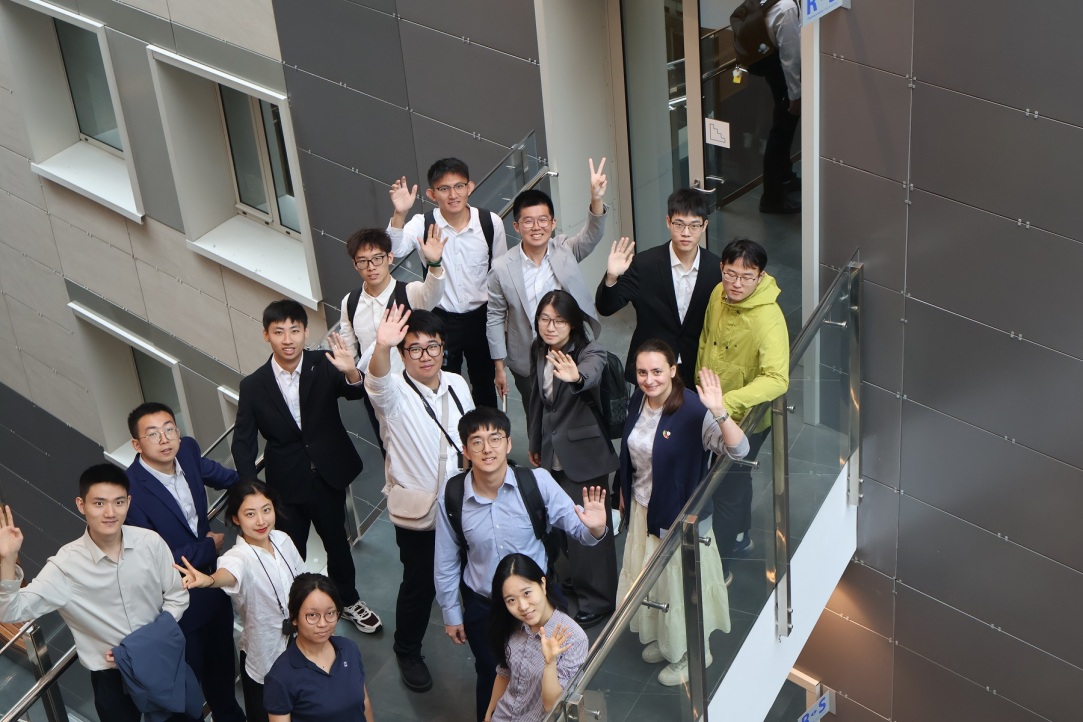
In July 2025, HSE University hosted a group of young scholars from Tsinghua University. During their visit, they attended a lecture on the latest developments in artificial intelligence at the Faculty of Computer Science and held workshops for HSE students as part of Chinese Culture Day.
The young researchers from Tsinghua’s Department of Automation, led by Associate Professor Shang Chao of the same department, are currently travelling the world as part of the Mobius project, visiting universities, research institutions, and corporations. This summer, their itinerary included Moscow and St Petersburg, where they visited HSE University, Bauman Moscow State Technical University, ITMO University, Sber, Kaspersky Lab, and the Russian branch of Huawei.
Their visit to HSE was organised by the Centre for International Student Mobility and Educational Projects, part of the University’s Department of Internationalisation. Fourteen students representing the Department of Automation, the Academy of Arts and Design, and the School of Economics and Management at Tsinghua University attended a lecture delivered by Daria Kasyanenko, Senior Lecturer at the Big Data and Information Retrieval School and Academic Supervisor of the Data Engineering programme. They learned about the application of AI tools in teaching at the Faculty of Computer Science and within the HSE AI Research Centre.
Tsinghua students also hosted a Chinese Culture Day at HSE, featuring workshops, a traditional tea ceremony, and various refreshments. HSE students attended the event and had the opportunity to try their hand at fan painting, making aromatic sachets, sugar painting, and practising their Mandarin language skills.
Peng Ziyi, team lead, student at the Department of Automation, Tsinghua University

— The presentation on the Faculty of Computer Science and the lecture on the application of AI in education were truly insightful. They gave our team a deeper understanding of how technology is shaping the future of education. The campus tour that followed was another highlight, offering us a glimpse into the dynamic academic environment of HSE. Our team was particularly impressed by the innovative approaches and dedication of both the teachers and students.
On Chinese Culture Day, July 24th, it was a pleasure to see HSE students so enthusiastic and engaged with Chinese culture. We were especially pleased to meet students with a genuine interest, making the event even more meaningful. We are grateful to the Centre for International Student Mobility and Educational Projects for organising the visit and inviting the students. We were inspired by the vibrant academic atmosphere, the warm hospitality, and the keen interest in Chinese culture shown by HSE students. We would love to continue our studies here in the future.
Liu Shuran, postgraduate student at Tsinghua University
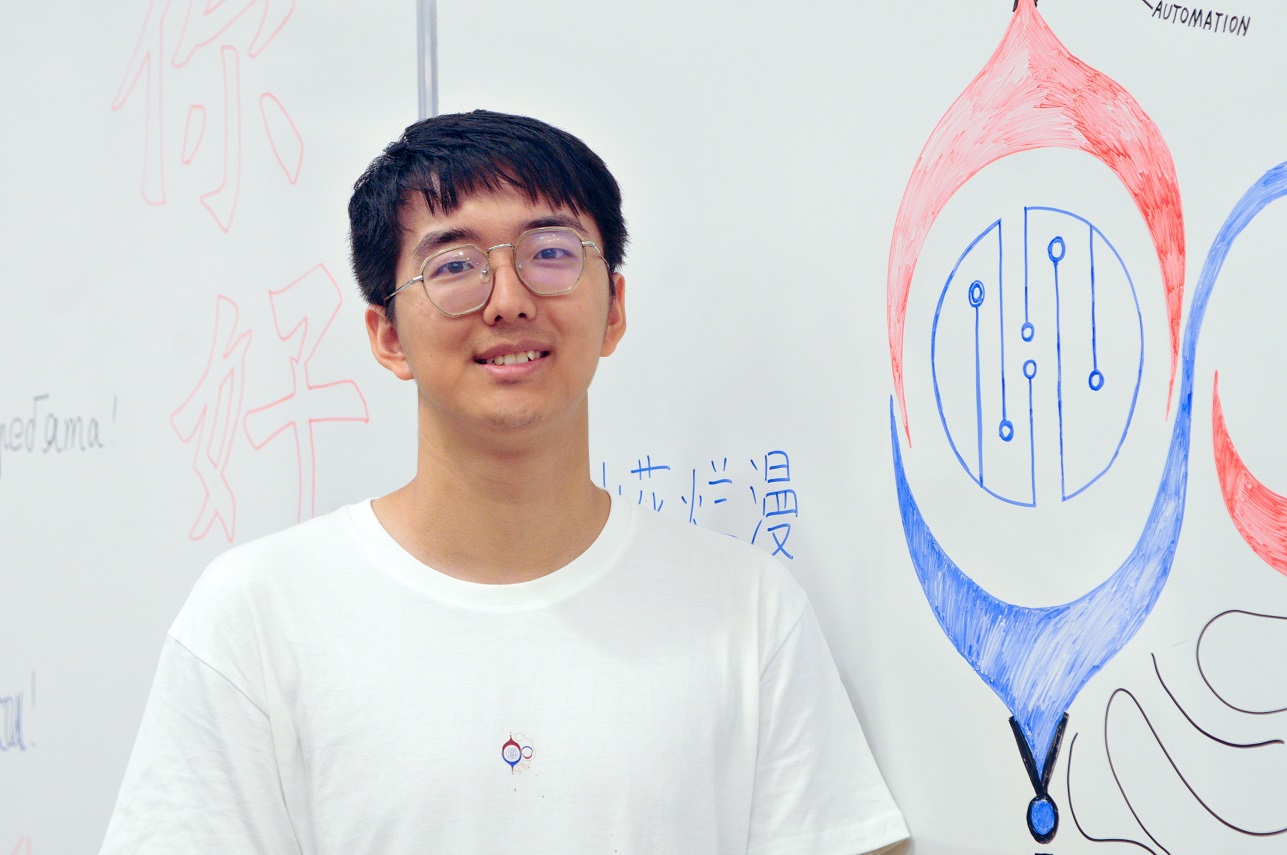
— We saw many impressive sights in Moscow and St Petersburg, but the most valuable aspect of our trip was undoubtedly the information we gained from first-hand sources while visiting universities and companies. We attended presentations on the practical applications of AI in various sectors and participated in discussions with experts. Each of us took away something useful for our own research projects.
I would particularly like to highlight the lecture by Daria Kasyanenko from HSE University. I was amazed to learn how significant a role digital literacy plays in the educational process at HSE. Students from all disciplines learn how to effectively use AI, code, and analyse data. I believe this is something Chinese universities should take note of.
Tela Meng, student at the Department of Automation, Tsinghua University

— Moscow offers a fascinating mix of history and modernity, and the metro is like an art museum!
I am glad that during our trip we had the opportunity to introduce local people to Chinese culture. In addition to the Chinese Culture Day at HSE, we also organised an outdoor event on Arbat Street. To our surprise, passers-by showed great interest—everyone wanted to make their own fan or aromatic sachet.
At HSE University, I really enjoyed the international atmosphere, and I was pleasantly surprised by how confidently and correctly the students spoke Chinese. Well done!
Jing Haoda, student at the Department of Automation, Tsinghua University
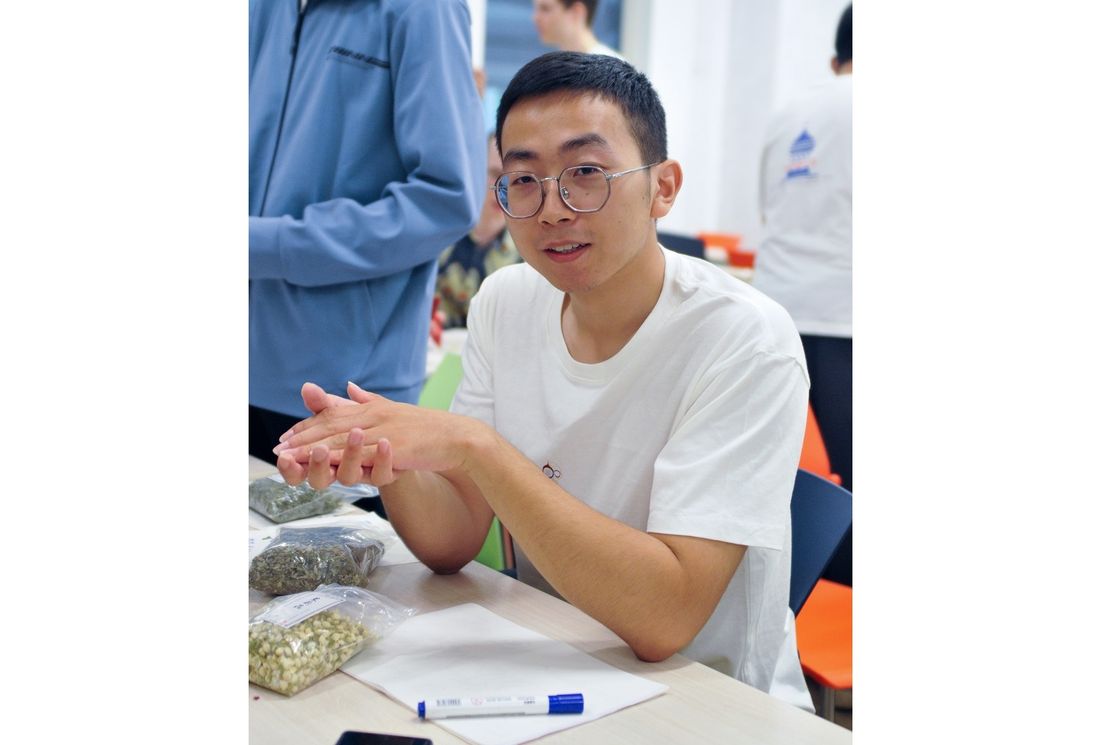
— I studied Russian for one semester in China, and this trip gave me a chance to test my knowledge in real life, helping my classmates deal with everyday matters in Russia as best I could. While my Russian is still not very strong, this trip has motivated me to continue learning. I also translated signs and labels into Russian for our cultural event. When I return to Russia, and I hope to do so more than once, I want to be able to communicate freely with everyone here.
Of all the organisations we visited, I would especially like to mention Kaspersky Lab. In large Chinese tech companies, it is common to follow the 996 schedule—9 am to 9 pm, six days a week. It was interesting to learn that Kaspersky Lab’s corporate culture allows employees to maintain a healthy work-life balance.
Sofia Tarasova, third-year student on the double degree programme between HSE University and Kyung Hee University ‘Economics and Politics in Asia’
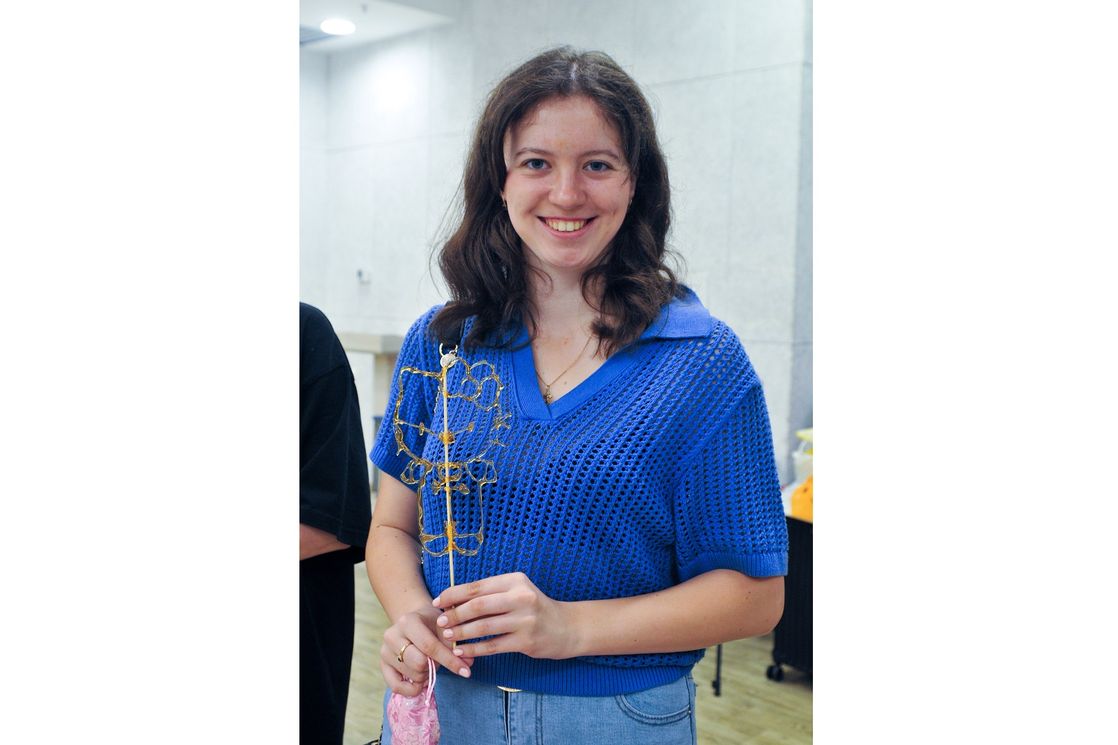
— I attended the Chinese Culture Day event organised by the students from Tsinghua. They were so friendly and cheerful that time seemed to fly by. It was great to practise my Chinese with native speakers in such a natural, relaxed setting, and perhaps even become friends. I really hope there will be more events like this at HSE in the future.
My favourite part was making a fan. I had always wanted one since childhood, but have never had a chance to try. Now I will keep it at home as a memento of the day.

Weidali Senotrusov, Head of the HSE Chinese Club
— We were delighted to welcome the students and postgraduates from Tsinghua University to HSE. It was wonderful to see students come together under one roof—those who had achieved top marks in their Gaokao or Unified State Exam to enter their respective universities—sharing their experiences and exchanging impressions. The Tsinghua students were especially enthusiastic about their visit to VDNH and, in particular, the Museum of Cosmonautics. They really enjoyed Moscow and some even began to seriously consider coming to HSE as academic exchange students.
Moreover, the Tsinghua students unanimously praised the very high level of Chinese among HSE’s Asian Studies students—a clear sign of their strong linguistic training. This is a very good indicator showing the high quality of Chinese language education at HSE.
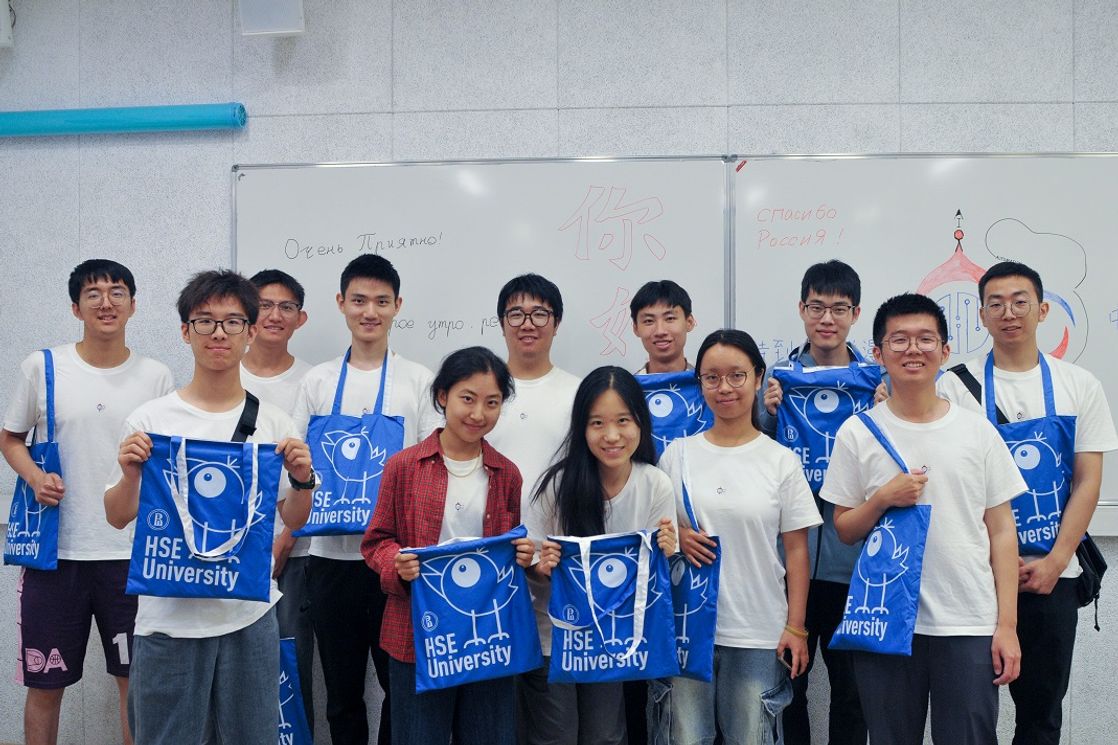
See also:
HSE University to Host Second ‘Genetics and the Heart’ Congress
HSE University, the National Research League of Cardiac Genetics, and the Central State Medical Academy of the Administrative Directorate of the President will hold the Second ‘Genetics and the Heart’ Congress with international participation. The event will take place on February 7–8, 2026, at the HSE University Cultural Centre.
HSE University Develops Tool for Assessing Text Complexity in Low-Resource Languages
Researchers at the HSE Centre for Language and Brain have developed a tool for assessing text complexity in low-resource languages. The first version supports several of Russia’s minority languages, including Adyghe, Bashkir, Buryat, Tatar, Ossetian, and Udmurt. This is the first tool of its kind designed specifically for these languages, taking into account their unique morphological and lexical features.
Language Mapping in the Operating Room: HSE Neurolinguists Assist Surgeons in Complex Brain Surgery
Researchers from the HSE Center for Language and Brain took part in brain surgery on a patient who had been seriously wounded in the SMO. A shell fragment approximately five centimetres long entered through the eye socket, penetrated the cranial cavity, and became lodged in the brain, piercing the temporal lobe responsible for language. Surgeons at the Burdenko Main Military Clinical Hospital removed the foreign object while the patient remained conscious. During the operation, neurolinguists conducted language tests to ensure that language function was preserved.
‘Living and Studying in China Is a Unique and Unforgettable Experience’
Arina Kurbetyeva is a third-year student of the Bachelor’s in Digital Technologies and Telecommunications run by the HSE Tikhonov Moscow Institute of Electronics and Mathematics (MIEM). During her second year, she spent one semester in China at CUHK-Shenzhen University as part of an academic mobility programme. The student shared her experience of studying in China with the HSE News Service.
HSE Scientists Use MEG for Precise Language Mapping in the Brain
Scientists at the HSE Centre for Language and Brain have demonstrated a more accurate way to identify the boundaries of language regions in the brain. They used magnetoencephalography (MEG) together with a sentence-completion task, which activates language areas and reveals their functioning in real time. This approach can help clinicians plan surgeries more effectively and improve diagnostic accuracy in cases where fMRI is not the optimal method. The study has been published in the European Journal of Neuroscience.
‘Analytical Centres and Programmes for PhD Students’: HSE University–St Petersburg Offers New Formats of Cooperation with PRC
The Rope Shop Educational Space of HSE University–St Petersburg hosted a conference on the present and future of Russian–Chinese relations. Together with Luo Zhanhui, Consul General of China in St Petersburg, leading experts in Asian and African Studies discussed vectors for the long-term development of the countries, the synergy of joint projects, and future educational partnerships.
Transition to Sustainable Development Requires Deep Structural Transformation of Business
A group of researchers has proposed assessing the ESG transformation of businesses through the partner turnover ratio in raw material and distribution supply chains. The researchers note that the path towards sustainability requires a deep and often costly restructuring of partner networks. This and other papers were presented at the Third International Annual Conference ‘ESG Corporate Dynamics: the Challenges for Emerging Capital Markets.’
HSE Researchers Offer Guidance to Prevent Undergraduate Burnout
Researchers at the HSE Institute of Education have identified how much time students should ideally devote to their studies, extracurricular activities, and personal life to maintain strong academic performance without compromising their mental health. An analysis of responses from 2,753 students, combined with their actual academic results, revealed several risk factors—such as excessive homework—as well as positive factors, including sufficient sleep, regular exercise, and moderate participation in projects. Based on these findings, the researchers developed practical recommendations for both students and universities. The paper has been published in the European Journal of Education.
HSE University Hosts China Academy of Art Delegation to Strengthen Academic and Research Cooperation
On December 12, HSE University welcomed a delegation from the China Academy of Art — one of the most prestigious creative universities in Asia. The visit built on the dialogue launched in September and reaffirmed the mutual interest in collaboration outlined during the visit of Natalia Logutova, Deputy Director of the HSE Institute for Creative Industries Development, to the academy’s campus in Hangzhou. The parties discussed ideas that could form the foundation for long-term partnership—from digital reconstructions of historical spaces to joint educational programmes and research initiatives.
HSE Scientists Contribute to Development of Postquantum Ring Signature for Sber
A new cryptographic data protection mechanism has been jointly proposed by experts from the HSE Tikhonov Moscow Institute of Electronics and Mathematics, Sber, and QApp. The researchers have developed a postquantum ring signature scheme that ensures anonymity (within a defined group of participants), as well as the integrity and authentication of the source of digital transactions, even in the presence of an adversary equipped with a quantum computer.


